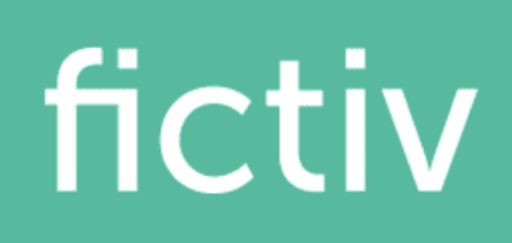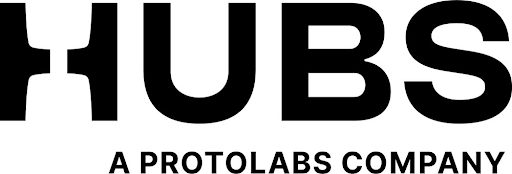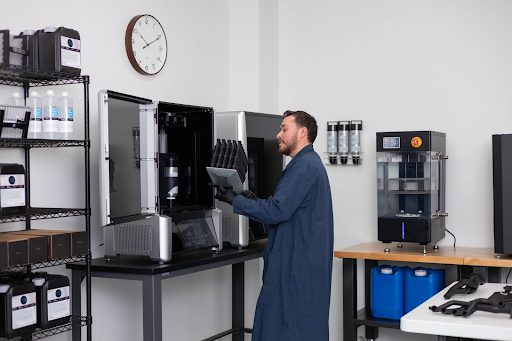- Markforged Onyx Filament Review & Alternatives [2024] - December 11, 2024
- 17 Best Professional 3D Printers: Commercial, Desktop, & Industrial [2024] - December 10, 2024
- Best 3D Printers (Industrial, Desktop, & More) [2024 Guide] - July 20, 2024
3D printing services offer individuals and businesses access to cutting-edge additive manufacturing capabilities without the need for equipment ownership or technical expertise. These services provide an array of advantages, ranging from cost savings to expert guidance.
Whether you’re an automobile manufacturer, engineering firm, or Hollywood studio, understanding the potential benefits and the scenarios in which to leverage 3D printing services can significantly impact your manufacturing processes.
This article will review the pros and cons of using 3D printing services and some of the best 3D printing services, digital manufacturing marketplaces, and service bureaus to give you several options.
Why Use 3D Printing Services?
3D printing services are companies or platforms that offer 3D printing capabilities to individuals or businesses so they don’t need to own, operate, or directly manage 3D printers themselves.
Here’s when using a 3D printing service might be beneficial:
1. One-off Projects
If you have a single product or project that you’re looking to 3D print, utilizing a 3D printing service can be a good option. Opting for a 3D printing service eliminates the need to invest in a printer, materials, and dedicated space, especially if you’re only planning to use the 3D printer a handful of times.
2. You Have Limited Resources
A high-end professional 3D printer can cost thousands, if not tens of thousands, of dollars. Add the costs of maintenance, material, and manpower, and it becomes clear that for small businesses or individuals, investing isn’t always feasible.
Using a 3D printing service can be a cost-effective way to produce items without the upfront investment, especially if you are printing limited objects.
3. You Don’t Want to Manage a Large Production
Managing a large 3D printing production requires 3D printing expertise, storage, manpower, quality control, and much more. For businesses that aren’t ready to scale or for those with sporadic production needs, 3D printing services can handle the production aspect, leaving the company to focus on other aspects of their business.
4. 3D Printing Requires Technical Expertise
3D printing isn’t as simple as pressing a button. It involves:
- Optimizing design files: A design might look good digitally, but translating it into a 3D-printable model requires skill.
- Choosing the right 3D printing material: Different projects require different materials with varying physical properties, such as tensile modulus and strength, flex modulus and strength, water absorption capabilities, and more.
- Machine calibration: Each print might require machine adjustments for precision.
- Post-processing: After printing, items often need cleaning, smoothening, or other finishing touches.
By using a 3D printing service, you leverage the expertise of professionals familiar with these services.
5. Opportunity to Try Technologies Before Investing
If you’re new to the world of 3D printing, a 3D printing service allows you to:
- Sample different technologies: Be it SLA, FDM, SLS, or newer technologies, 3D printing services often offer a range of printing types.
- Low-risk exploration: Before committing capital to a specific technology, you can gauge its feasibility for your needs by exploring the technology with a 3D printing service.
6. Your Internal Manufacturing Shop is Fully Utilized
Even if you have your own production setup, there might be times of peak demand when your internal capacities are maxed out, and you just can’t add a 3D printer to your manufacturing floor. Instead of turning down orders or delaying production, 3D printing services can help produce items to help meet demand.
Types of 3D Printing Services
Depending on your project’s requirements, time frame, and budget, there’s a specific type of 3D printing service that will align best with your needs. Here’s a deep dive into the three primary types:
Digital Manufacturing Marketplaces
A digital manufacturing marketplace is an online platform that bridges the gap between individuals or businesses seeking manufacturing services and a global network of manufacturers. These marketplaces offer:
- Vast networks: Users can access a global pool of manufacturers, ensuring competitive pricing and a broad range of expertise.
- Instant quotations: Based on design complexity, material, and other factors, users receive immediate cost estimates.
- Feedback systems: Reviews and ratings give insight into a manufacturer’s reliability, quality, and customer service.
Manufacturing Service Bureaus
Manufacturing Service Bureaus are specialized entities offering a comprehensive range of manufacturing services, predominantly in 3D printing. These bureaus provide an end-to-end solution that includes expert consultation on design optimization, material selection, and post-production finishing.
Local Machine Shops
Local Machine Shops are community-based facilities that offer a diverse range of manufacturing services, including 3D printing. Their local presence allows for real-time collaboration, enabling clients to directly engage in the manufacturing process, make immediate design adjustments, and observe the evolution of their product firsthand.
Best 3D Printing Services: Digital Manufacturing Marketplaces
Time to explore some of the best marketplaces to find services that suit your digital manufacturing needs.
1. Xometry

Xometry is an AI-enabled marketplace that connects buyers with a diverse global network of over 10,000 vetted manufacturers across 46 US states, Europe, and Asia. The platform uses an Instant Quoting Engine® which leverages data science and allows users to choose optimal prices and lead times for their projects.
Xometry uses various technologies, such as Nexa3D’s Lubricant Sublayer Photo-curing (LSPc®).
3D Printing Services:
- Nexa3D LSPc
- Selective laser sintering
- Fused deposition modeling
- Stereolithography
- Direct metal laser sintering
- PolyJet
- Carbon DLS
- Binder jet metal
- HP Multi Jet Fusion
Materials: Polycarbonate, Ultem, Stainless Steel, Aluminum, Nylon, ABS, ASA, ULTEM 9085, ULTEM 1010, xGPP, x45, xPRO410, xMODEL17 Clear, xCE, xESD, xPP405 Black, xPP405 Clear, xPEEK147, xFLEX402, xFLEX475 Black, xFLEX475 White, xCERAMIC3280
Product Types:
- Rapid prototyping
- Concept models
- Customized parts
2. Fictiv

Fictiv is a digital manufacturing marketplace founded in 2013 to help companies with custom mechanical part sourcing. The platform allows customers to upload a 3D model of the part they want to be manufactured and receive an instant quote. The platform analyzes the design, offers a detailed cost breakdown, and allows for easy order placement. Fictiv is used in industries such as robotics, consumer goods, automotive, aerospace, and medical devices.
3D Printing Services:
- Multi jet fusion
- Selective laser sintering
- Fused deposition modeling
- Stereolithography
- PolyJet
Materials: ABS, ABS ESD, ABS-Like, Accura 25, Accura 60, Accura ClearVue, Accura Xtreme Grey or White 200, ASA, Nylon, PA 12 Glass Beads, PC+ABS, PETG, PLA, Polycarbonate, Polypropylene, Rubber-Like, Vero, VeroClear\
Product Types:
- Prototyping
- Engineer-To-Order (ETO) Rapid production
3. Hubs

Hubs is a digital manufacturing marketplace that connects engineers with a global network of manufacturing partners. The platform was acquired in 2021 by Protolabs, and it offers various manufacturing capabilities, supporting both one-off prototyping and full-scale production. Hubs allow users to choose between local and international manufacturing partners. With the local manufacturers being faster but more expensive.
3D Printing Services:
- Selective laser sintering
- Fused deposition modeling
- Stereolithography
- Multi jet fusion
Materials: ABS, ASA, Nylon, PEI, PETG, PLA, Resin, TPU
Product Types:
- Rapid prototyping
- Mass production
Best 3D Printing Services: Manufacturing Service Bureaus
Here are some of the best manufacturing service bureaus:
1. Quickparts
![]()
Quickparts is a manufacturing service company that delivers traditional and on-demand additive manufacturing services. With an International Traffic in Arms Registration (ITAR), Quickparts can serve clients in the aerospace and defense industry in four countries (U.S., U.K., Italy, and Germany).
The company also analyzes customers’ 3D CAD data and generates quotes based on specified volume, geometry, and production quantities.
Services:
- Selective laser sintering
- Stereolithography
- Direct metal printing
Materials: Accura® 60, Accura® ABS Black (Sl 7820), Accura® Bluestone™, Accura® ClearVue™, Accura® Xtreme™, Accura® Xtreme™ White 200, Accura® 25, Accura® 48HTR Duraform® GF Plastic, Duraform® HST Composite, Duraform® PA Plastic, Duraform® TPU Elastomer, Duraform® EX Plastic
Product Types: Rapid prototyping
2. Protolabs

Protolabs is a digital manufacturing service that was founded by Larry Lukis in 1999. They offer services for product developers, designers, and engineers to create prototypes and carry out low-volume production. Proto Labs’ process allows customers to upload CAD files and receive real-time pricing and design analysis. They also offer design support and supply chain services.
Services:
- Stereolithography
- Metal 3D printing
- Multi jet fusion
- Selective laser sintering
- PolyJet
- Carbon DLS (digital light synthesis)
Materials: ABS-Like Gray, ABS-Like MicroFine™, ABS-Like Black, PP-Like Translucent White, ABS-Like Translucent/Clear, PC-Like Translucent/Clear, PC-Like Advanced High Temp, Ceramic-Like, PA12 40% Glass-Filled, PA11 Black, PA12 White, Stainless Steel, Aluminum, Titanium, Inconel 718
Product Types:
- Rapid prototyping
- On-demand manufacturing
3.Fathom
![]()
Fathom is a manufacturing company that specializes in prototyping, design for manufacturing, production, and supply chain solutions across diverse industries, including aerospace, automotive, government, defense, industrial, and medical.
They also provide engineering support, sheet metal fabrication, injection molding, and more.
Services:
- Polyjet
- Fused deposition modeling
- Selective laser sintering
- Selective thermoplastic electrophotographic process (STEP) Technology
- Multi jet fusion
- Stereolithography
- Direct metal laser sintering
- Design support
Materials: ABS, Polylactide, Polycarbonate, Polyamide, Nylon 12 (Tensile strength 45 MPA), Epoxy Resin, Wax, Photopolymer Resins, Aluminum, Titanium
Product Types: Rapid prototyping
4. Materialise

Materialise was founded by Fried Vancraen in 1990. The company’s CO-AMTM software platform offers modular applications for suppliers and teams managing in-house 3D printing processes. Materialise offers engineering, analysis, and simulation tools for research teams. They also provide biomechanical analysis and 3D planning for healthcare professionals.
Services:
- Stereolithography
- Selective laser sintering
- Multi jet fusion
- Metal 3D printing
- PolyJet
Materials: Polypropylene, PA 2210 FR, PA-AF, PA 12, PA-GF, PA 12, Ultrasint TPU 90A-01
Product Types:
- Rapid prototyping
- Small series production
- Mass customization
- Production tooling
- Spare parts
5. Stratasys Direct Manufacturing

Stratasys Direct Manufacturing specializes in 3D printing, providing services for identifying, designing, and developing process specifications for various parts. With 30 years of experience, they operate in industries such as aerospace, automotive, consumer products, medical equipment, and energy.
They also cater to designers, engineers, and enterprise companies, offering manufacturing technologies and materials from their three facilities across the U.S. These facilities are ISO9001 and AS9100 certified, and ITAR registered.
Services:
- Selective laser sintering
- Stereolithography
- PolyJet
- Fused deposition modeling
- Selective absorption fusion
- Programmable PhotoPolymerization P3™
Materials: RGD720, DraftWhite™, Vero Vivid Colors, Stratasys Open Materials for P3, LOCTITE® 3D 3172 High Impact by Henkel, KeyGuide® by Keystone Industries, ABSplus, ABS-M30i, ULTEM™ 1010 resin, PLA, PC, ST-130, Polyphenylsulfone (PPSU), ULTEM™ 9085 Resin, Somos® EvoLVe™ 128, Somos® WaterClear Ultra 10122, Somos® 9120™, Somos® BioClear™, Somos® PerFORM, SAF™ PA12, High Yield PA11, Nylon 11 EX, Nylon 11 FR, Nylon 12 PA (SLS), Nylon 12 FR
Product Types:
- Rapid prototyping
- Production parts
- Composite tooling
6. Sculpteo

Sculpteo is a company that provides online 3D printing and laser cutting services. They offer project development through production to ensure that the process can be replicated. Through their design studio and consulting services, Sculpteo also provides virtual simulation and physical testing for part conformity.
Services:
- Fused deposition modeling
- Selective laser sintering
- Stereolithography
- Digital light processing
- Direct metal laser sintering
- Electron beam melting
- PolyJet
Materials: Nylon PA12, Ultrasint® PA11, PA12 (gray), Nylon 3200 Glass-Filled, Alumide, Ultrasint® PA11 CF, Ultrasint® PA11 ESD, Ultrasint® PA6 MF, Ultrasint® TPU 88A, Aluminium, Titanium, Stainless Steel 316L, Metal Steel/Bronze 420SS/BR, Stainless Steel 316L, Bronze, Brass, Silver
Product Types:
- Rapid prototyping
- Contract manufacturing
- On-demand manufacturing
When Not to Use 3D Printing Services
3D printing services can be a convenient solution for many individuals and businesses, offering easy access to additive manufacturing without the need for equipment ownership or specialized knowledge.
However, there are situations where utilizing these services might not be the optimal choice. Here’s a deeper dive into such instances:
1. Large or Multiple Production Runs
For those consistently producing a high volume of items or frequently needing multiple runs of a particular design, the cumulative cost and waiting time of using a 3D printing service can mount up.
This is when it’s probably smart to invest in an in-house printer. After an initial upfront investment, you depreciate the cost of the printer over time. Once the investment cost has been recouped, the 3D printer essentially becomes a “free” piece of equipment and no longer affects the cost of your 3D printing project.
Over time, especially with frequent printing, these costs can be significantly less than consistently paying a service for each print.
Determine the cost of your next project with this 3D printing cost simulator.
2. Control Over the Production Process
While many 3D printing services offer customization options, they might not cater to every unique requirement, potentially compromising on the end product’s quality or characteristics. Having an in-house 3D printer allows for complete control over the entire printing process and expedites reprints if any errors occur.
3. Easier Adjustment of Designs
In cases where a design is continuously evolving, or where iterative changes are frequent, the use of an external service can slow down progress. Every modification would necessitate a fresh submission, elongating the feedback loop and potentially delaying project milestones.
With an in-house printer, a design can be tweaked and reprinted almost immediately, facilitating a much faster feedback loop. Plus, if a print doesn’t turn out right, it can be immediately adjusted and reprinted.
4. Expedite Time-to-Market
When time is a critical factor, working with a 3D printing service may not be the best choice. Even if the printing process itself is swift, other factors like queue times, processing, and shipping durations can push back timelines, potentially affecting product launches or delivery to stakeholders.
5. Reduced Reliance on Outsourcing
Introducing an external service into the operational flow means another point of potential gridlocks. Misunderstandings, service interruptions, or even external factors like shipping disruptions can introduce unforeseen challenges and delays, potentially affecting the project’s success.
Owning a 3D printer can help eliminate these potential issues that can arise when working with an external service and can ensure production keeps running smoothly.
More on 3D Printing Services

Can you order something to be 3D printed?
Absolutely! Numerous online platforms and local businesses specialize in 3D printing services. The process is straightforward: you upload a 3D model (often in .STL or .OBJ format), choose the material and other specifications, and the service will print and ship the object to you. This provides an easy and accessible way for individuals and businesses who might not own a 3D printer to benefit from the technology.
How much does it cost to have something 3D printed?
The cost to have an item 3D printed varies widely based on several factors:
- Size and complexity of the design: A larger or more intricate design will require more material and longer print times, which generally increases the cost.
- Material used: Common plastics like PLA or ABS tend to be less expensive than specialized materials like resins or metal-infused filaments.
- Resolution and layer height: A higher resolution print (with finer layers) takes longer and might cost more.
- Post-processing needs: Some prints may need additional work after printing, such as painting, smoothing, or assembling multiple parts.
- Service provider: Different services have different pricing models. Some might offer bulk discounts or have higher or lower rates based on their equipment and expertise.
As a general ballpark, small simple objects might cost as little as $5 to $20, while larger, more complex objects can run into the hundreds or even thousands of dollars, especially if specialized materials or high-resolution prints are required.
What is the average cost per hour for 3D printing?
The cost per hour for 3D printing can vary significantly based on whether you’re using a service or doing it yourself. Many factors can influence this cost, including the type of printer, materials used, and specific job requirements.
For a precise and tailored estimate of potential 3D printing costs, use Nexa3D’s 3D printing project cost simulator.
Do You Need a 3D Printing Service?
When the financial commitment of owning and maintaining a professional 3D printer feels daunting, 3D printing services can offer a cost-effective alternative. This makes them particularly attractive to small businesses and individuals looking to experiment with different 3D printing technologies.
If you want more control over your product’s quality and production processes, purchasing a 3D printer is the best way to go. Nexa3D has a lineup of the best 3D printers, including the XiP Pro, NXE 400Pro, XiP, QLS 230/6, and QLS 820.
With Nexa3D’s ultra-fast 3D printers, you can unlock a new world of better manufacturing processes.
Ready to experience it yourself?
